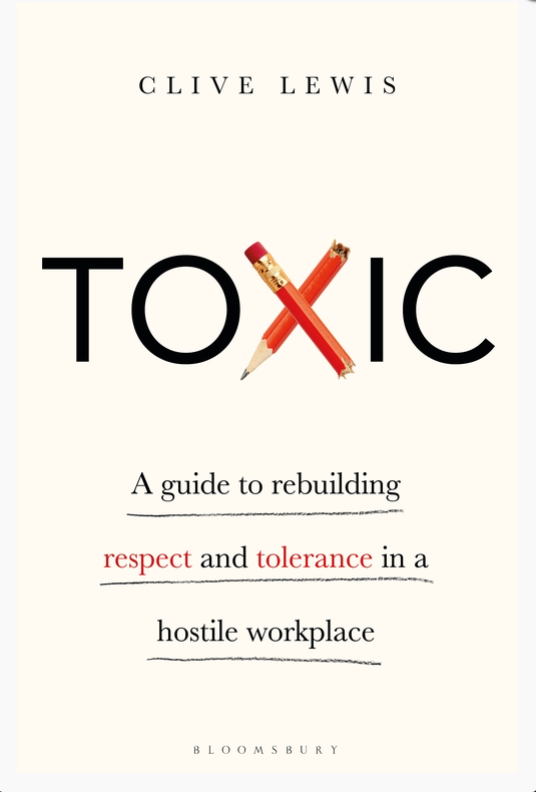I was excited by the premise of this book, promising to be ‘a guide to rebuilding respect and tolerance in a hostile workplace’ as there do seem to be far too many hostile workplaces. Also, I’ve seen the long-lasting negative impact on people who work in that kind of environment and it is a problem worth addressing.
This book made me think and helped provide a structure for my thinking on this, providing a good exploration of the factors that have led to the rise of the toxic workplace including an erosion of trust, industrial relations, resilience, the five-generation workplace, technology, corporate scandals, CEO tenure, the gig economy, sleep deprivation and several others!
There is a good exploration of the symptoms of a toxic workplace, including rewarding mediocre performance, employees avoiding disagreements with managers for fear of reprisal, personal agendas taking precedence over the long-term well-being of the company, and high employee turnover. Clive Lewis’s then defines the ‘toxic triad’ of conditions involving the organisation, line managers and employees that allow toxicity to flourish and shares a lot of practical behavioural tips that can address many of the issues. The book continues to dive deeper into the toxic triad, exploring how to address organisation systems, line management capability and the attitude of the employee.
I only skim-read the section citing Dr Norman Vincent Peale on ‘The Power of Positive Thinking’ and I would much prefer to see the inclusion of evidence-based approaches from decades of Positive Psychology research (although I am aware that other views are available).
There is a really powerful exploration of toxic leadership, citing Whicker’s definition of toxic leaders as “bullies, enforcers and streetfighters. They are maladjusted, malcontent and often malevolent and malicious people who succeed by tearing others down and glory in turf protection and controlling others. They have a deep-seated but well-disguised sense of personal inadequacy, selfish values and cleverness at concealing deceit. They can, by virtue of their destructive behaviours and dysfunctional personal qualities, inflict serious and enduring harm on the individuals, organisations, communities or even nations that they lead”
I’ve often said that organisations tend to get the culture they deserve, and what you choose to celebrate (and tolerate) has an impact. Toxic leadership is a problem, and on that I know many organisations feel poorly equipped to address. This book should help you both appreciate the importance of addressing it, and provide ideas for how to actually do it.
Published by Bloomsbury or Globis Mediation Group
Ian Pettigrew, Kingfisher Coaching









